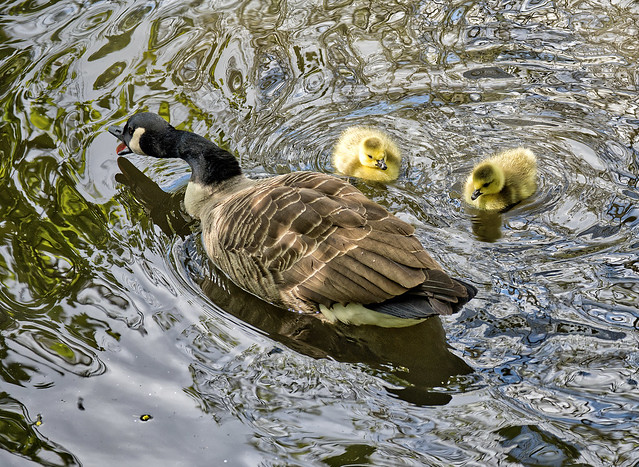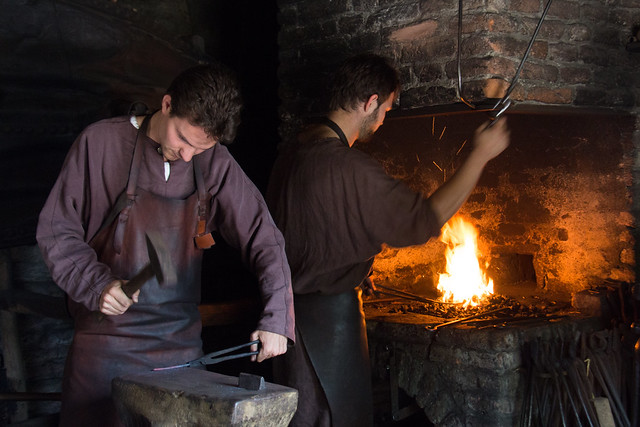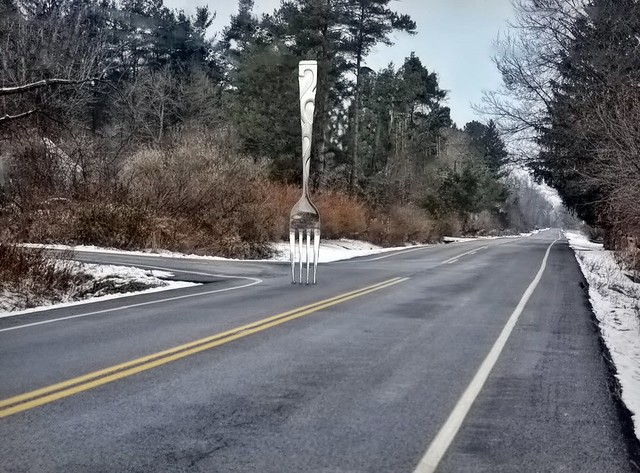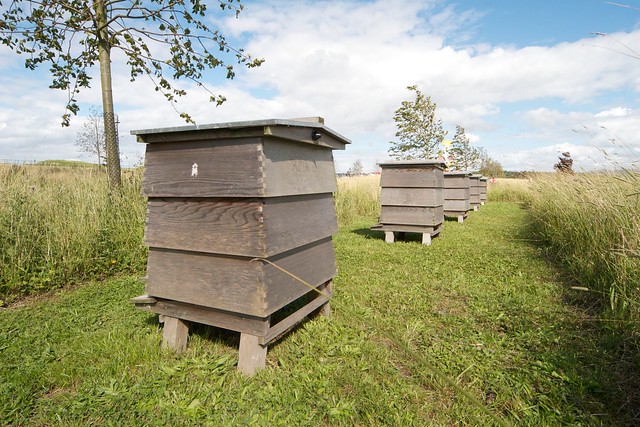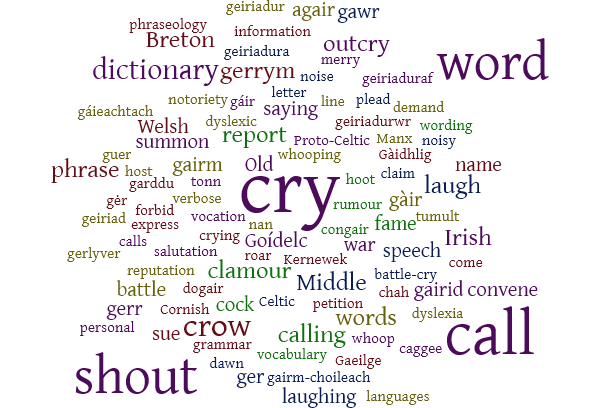Today we’re looking at the words for mother and related people in Celtic languages.
| Proto-Celtic | *mātīr [ˈmaː.tiːr] = mother *mātrikʷā, *mātrokʷī = maternal aunt, mother-like |
|---|---|
| Gaulish | mātīr [ˈmaːtiːr] = mother |
| Celtiberian | matrubos = mothers |
| Old Irish (Goídelc) | máthir [ˈmaːθirʲ] = mother máthrathatu = motherhood máthramail = resembling one’s mother |
| Irish (Gaeilge) | máthair [ˈmˠɑːhəɾʲ/ˈmˠɑːɾʲ/ˈmˠahærʲ] = mother, source (of a river) máthairab = abbess máthairthír = mother country máthreachas = maternity, motherhood máthrigh = to mother, bear, foster máthriúil = motherly, tender, kind, mother-like máthriúlacht = motherliness leasmháthair = stepmother seanmháthair = grandmother |
| Scottish Gaelic (Gàidhlig) | màthair [maːhɪrʲ] = mother, origin, source màthair-uisge = water source (of a river, etc) màthair-chéile = mother-in-law màthaireachd [maːhɪrʲəxg] = maternity, motherhood màthaireil = mother-like, motherly, maternal màthair athar = paternal grandmother màthair màthar = maternal grandmother màthair-sinnsireach = matrilinear leas-mhàthair = stepmother |
| Manx (Gaelg) | moir = mother, matron, mater, queen, dam; focus, fountainhead, generator moiragh, moiroil = motherly moiraght = motherhood moiraghys, moirys = maternity, motherhood moir-reilleyder/strong> = matriach lhiass voir = stepmother shenn voir = grandmother |
| Proto-Brythonic | *mọdreb = aunt |
| Old Welsh | modreped = aunts |
| Middle Welsh (Kymraec) | modryb = aunt |
| Welsh (Cymraeg) | modryb = aunt, uncle’s wife, matron modrybaidd = aunt-like, matronly, motherly, respected modrydaf = queen bee, parent bee-colony, (old) beehive |
| Old Cornish | modereb = aunt |
| Cornish (Kernewek) | modrep = aunt modrebik = aunty |
| Old Breton | motrep = aunt |
| Middle Breton | mozreb = aunt |
| Breton (Brezhoneg) | moereb [ˈmweːrep] = aunt moereb-kozh = great aunt |
Etymology: from the Proto-Indo-European *méh₂tēr. (mother) [source].
| Proto-Celtic | *mamm(y)ā = mother, nanny, mum |
|---|---|
| Old Irish (Goídelc) | muimme [ˈmaːθirʲ] = wet nurse, foster mother, instructress, patroness |
| Irish (Gaeilge) | buime = foster-mother, nurse |
| Scottish Gaelic (Gàidhlig) | muime [muimə] = stepmother, (wet) nurse, godmother muime-chìche = wet nurse muime-shìthe = fairy godmother |
| Manx (Gaelg) | mimmey = foster mother, god mother, godparent, guardian, sponsor |
| Proto-Brythonic | *mamm = mother |
| Middle Welsh (Kymraec) | mam = mother |
| Welsh (Cymraeg) | mam [mam] = mother, ancestress, dam, queen bee; source, origin, cause, root; womb, matrix, uterus, hysteria, pregnancy mamaeth = (wet) nurse, foster-mother, mother mamaetha = to nurse (a child), suckle, foster, nourish, cherish mamedd = motherhood mamiaith = mother tongue, vernacular mamwlad = mother country, motherland, native land |
| Old Cornish | mam = mother |
| Middle Cornish | mam = mother |
| Cornish (Kernewek) | mamm [mæm], mabm = mother mammeth = foster-mother, wet nurse mammik = mum mammrewl, mammrowl = matriarchy mamm-wynn = grandmother mamm vesydh = godmother |
| Middle Breton | mamm = mother |
| Breton (Brezhoneg) | mamm [ˈmãmː] = mother, female (animal), womb mammanv = matron, matriarch mammelezh = motherhood, maternity mammvro = motherland, homeland mamm-gozh = grandmother |
Etymology: from the Proto-Indo-European *mammā (mummy, mum) [source].
Words marked with a * are reconstructions.
Sources: Wiktionary, Am Faclair Beag, Online Manx Dictionary, Teanglann.ie, eDIL – Electronic Dictionary of the Irish Language, In Dúil Bélrai English – Old Irish glossary, Geiriadur Prifysgol Cymru, Gerlyver Kernewek, Gerlyvyr Cernewec, Dictionaire Favereau, TermOfis, Le dictionnaire diachronique du breton, Geriafurch, English – ProtoCeltic WordList (PDF), Etymological Dictionary Of Proto Celtic
